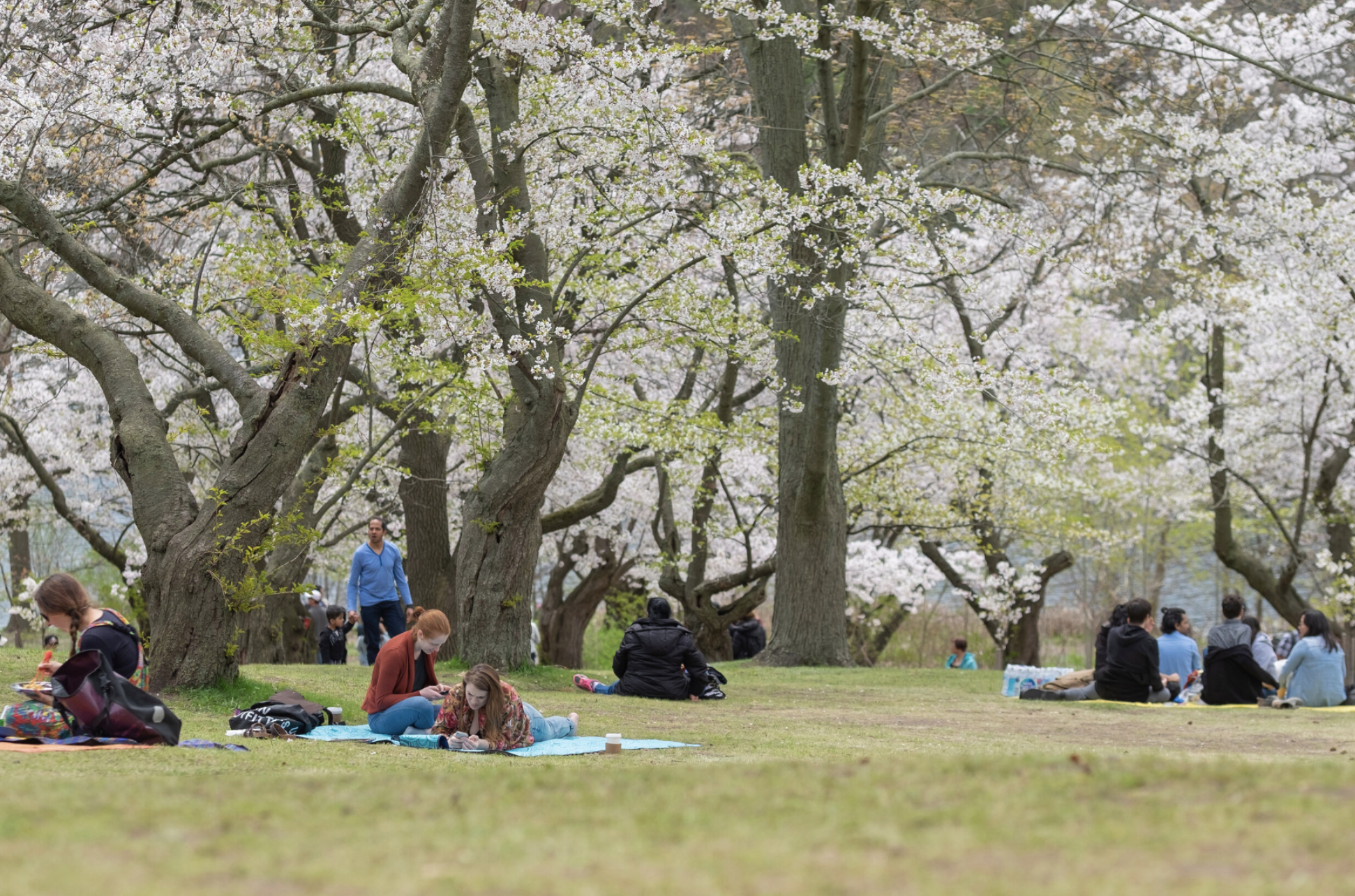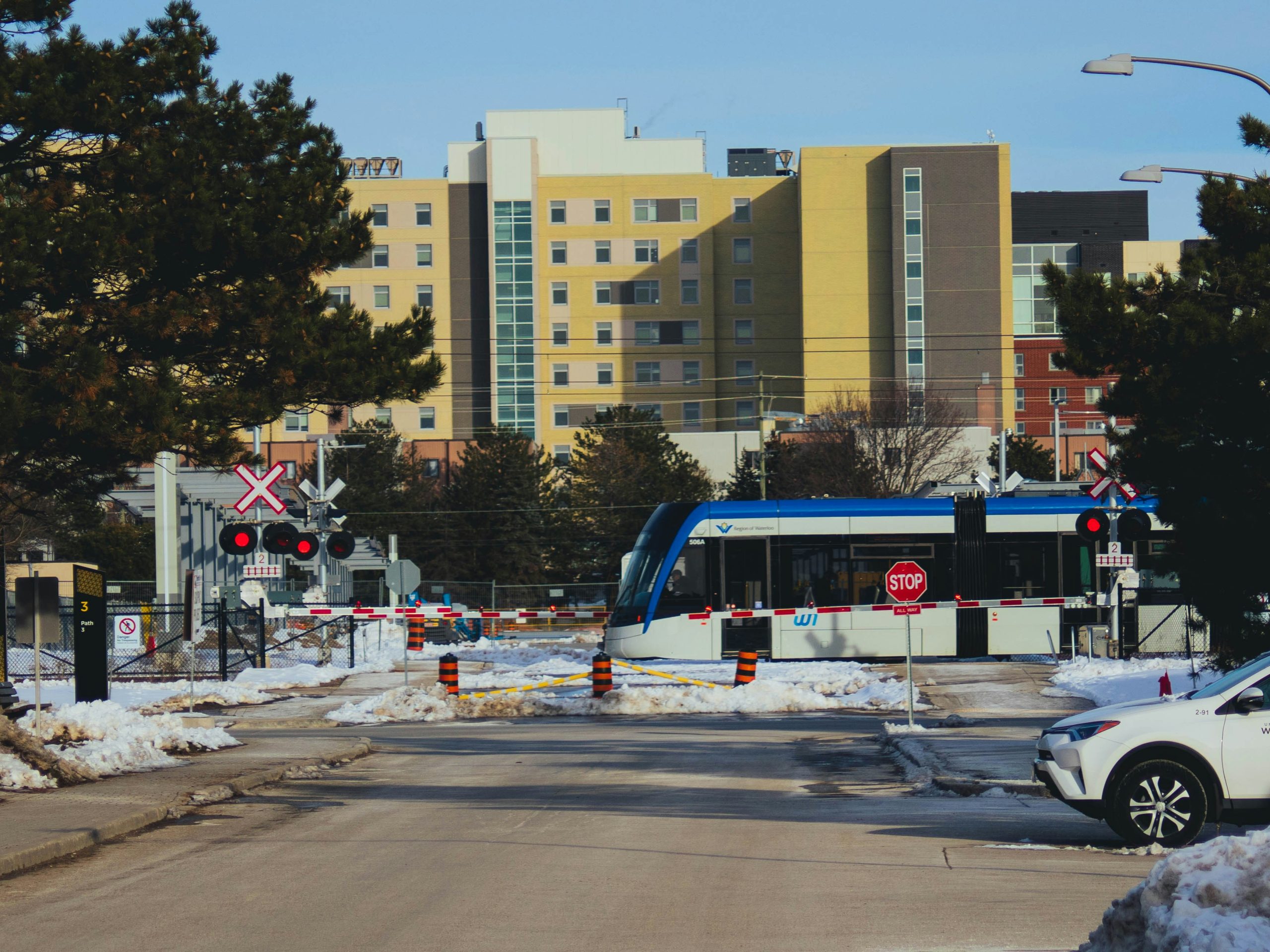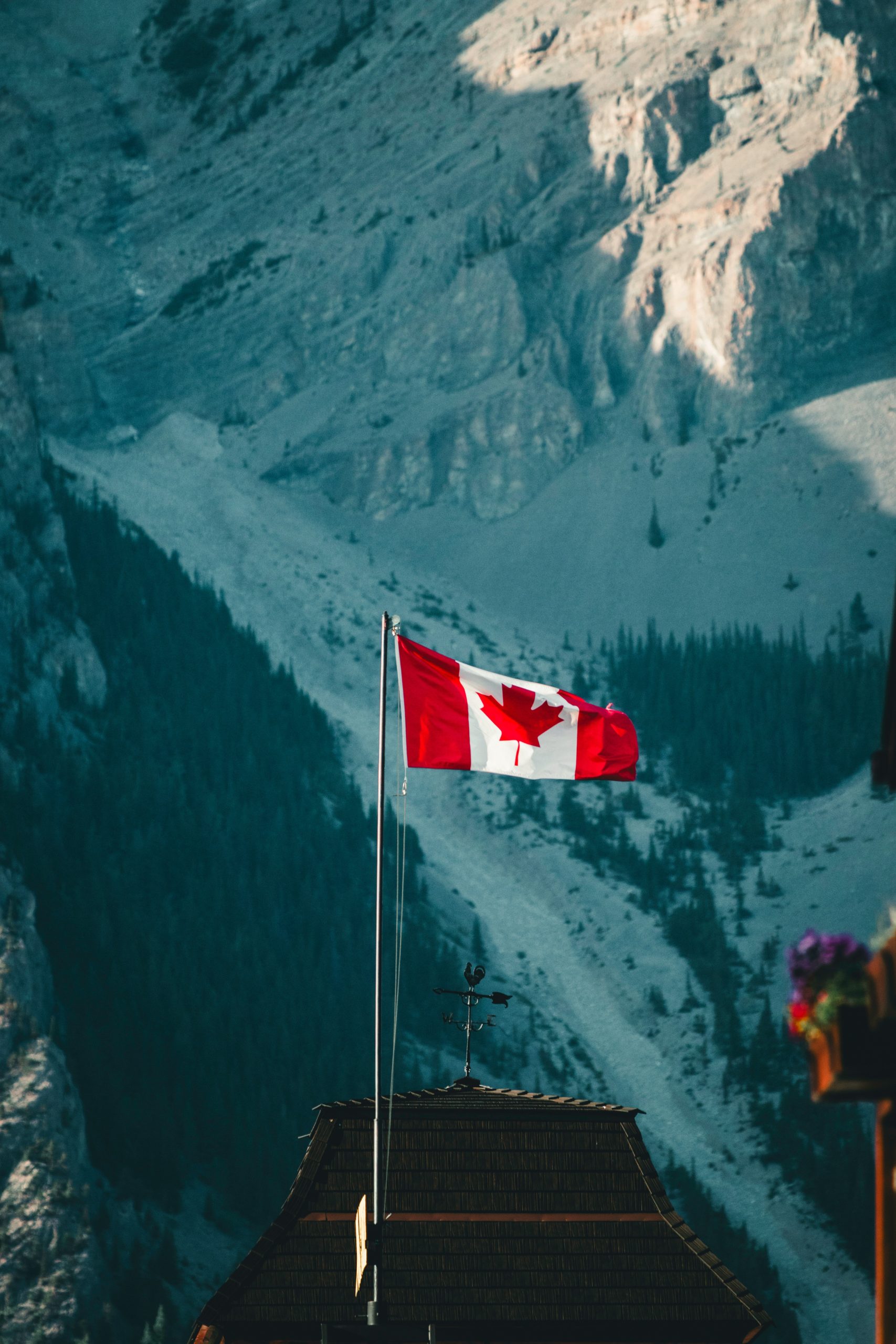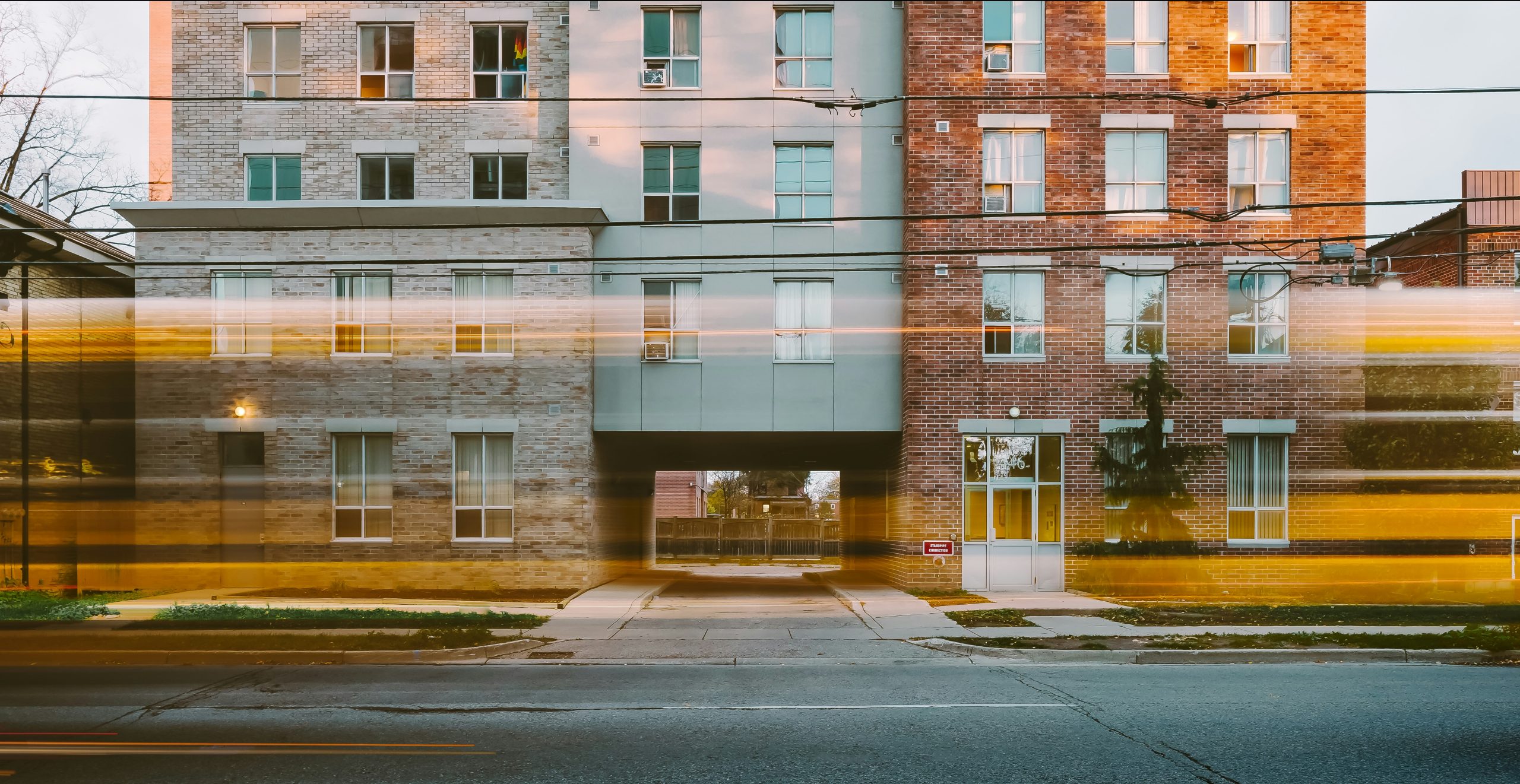Featured Guest
You’ll find this guest among our growing roll of Urban Champions.
-
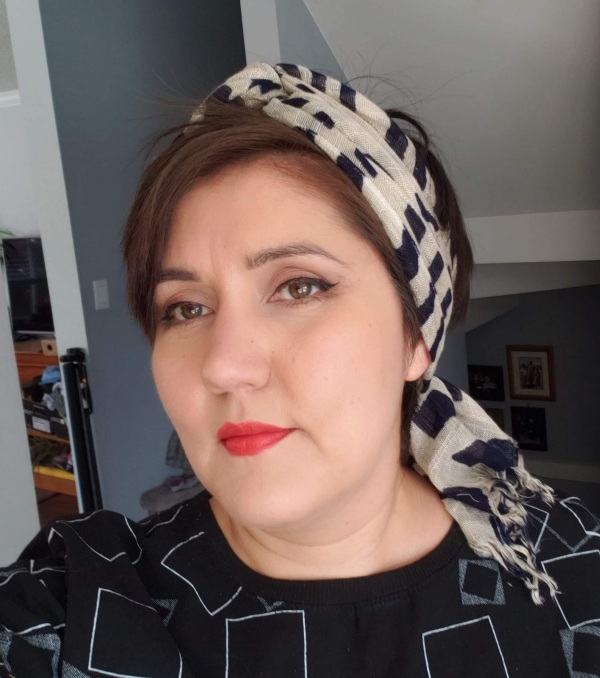
Rena Soutar
Manager of Decolonization, Arts and Culture, Vancouver Board of Parks and Recreation
-

Dave Harvey
Executive Director, Park People
-
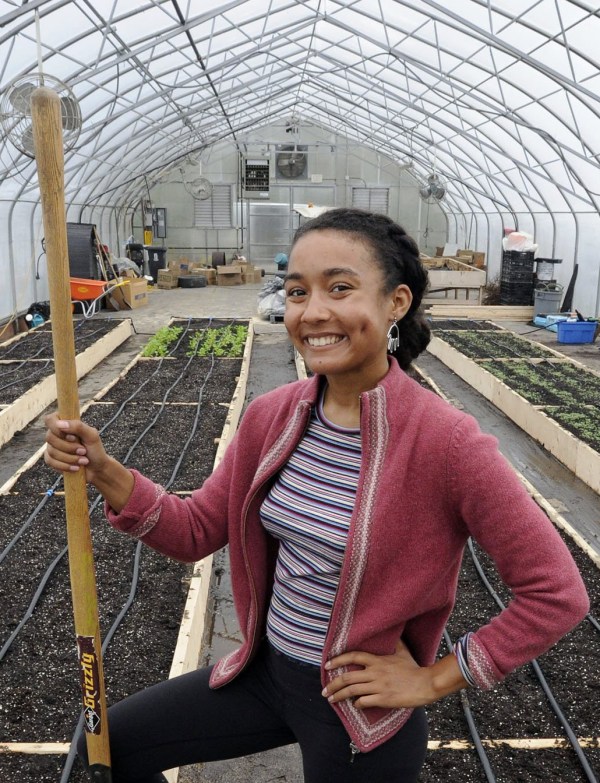
Cheyenne Sundance
Founder, Sundance Harvest
-
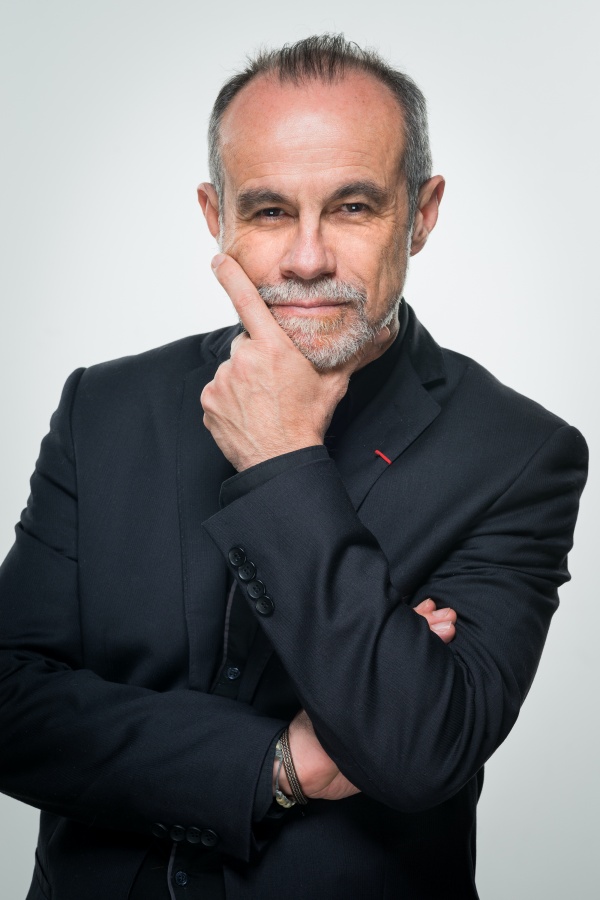
Carlos Moreno
Chair, Entrepreneurship, Territory, Innovation, Sorbonne Business School
5 Key
Takeaways
A roundup of the most compelling ideas, themes and quotes from this candid conversation
1. Shifting how we think about providing green space
One of the panelists argued that we need to shift from the notion of providing green space across the city to focusing on historically underserved areas of our cities. Through that lens, we often see a stark picture in the unevenness in the types of green spaces available across our urban landscapes, and the areas in which the most vulnerable among often do not have access to open space, which is so needed during COVID-19.
2. Making parks more welcoming
The design and governance of public spaces is not neutral, and there are signals (posted signs, the design of park infrastructure, park rules, etc.) that communicate who public spaces are for, and who feels comfortable in them. Intentional urban design that ensures public spaces are welcoming for everyone is needed—for example, working with rights holders to restore control over public space. In the case of Vancouver, for instance, there is work happening to designate parcels of land for Indigenous cultural practice.
3. Parks as a public good
One of our panelists brought up the need to define parks as a public good. Parks are centers for social inclusion where activities such as music, leisure, culture and sports co-exist. Paris was identified as having a progressive funding model where the local participatory budget process resulted in an improvement of public spaces.
4. Parks of hope
Parks are a place where change can happen. Our panelists explored many aspects of life which can be transformed by parks. Urban farming, for example, and enabling income generation through urban farming, could be a measure to help communities access opportunity and community connection.
5. Funding parks
Panelists argued that parks were already underfunded before COVID-19, and this has only been exacerbated by the crisis. Our panelists suggested reevaluating municipal budgets to provide more money to fund park spaces.
Additional Reading & Resources
Climate Safe Neighborhoods, Groundwork USA
Superkilen, Arch Daily
A guide to growing and selling fruits and vegetables in Toronto, Live Green Toronto
Towards improving Traditional food access for Urban Indigenous People, Robyn Ermine, Rachel Engler-Stringer, Patricia Farnese & Glenda Abo
Canada working towards new future for Indigenous-led conservation, James Dinneen, Mongabay
Strengthening and Expanding Urban Agriculture in NYC, Design Trust for Public Space
Walking through the Indigenous Urban Agriculture Garden, Evergreen
Full Panel
Transcript
Note to readers: This video session was transcribed using auto-transcribing software. Manual editing was undertaken in an effort to improve readability and clarity. Questions or concerns with the transcription can be directed to events@canurb.org with “transcription” in the subject line.
Full Audience
Chatroom Transcript
Note to reader: Chat comments have been edited for ease of readability. The text has not been edited for spelling or grammar. For questions or concerns, please contact events@canurb.org with “Chat Comments” in the subject line.13:01:48 From Canadian Urban Institute: Folks, please change your chat settings to “all panelists and attendees” so everyone can see your comments.
13:03:39 From Cheryl Cohen: Thank you!
13:03:57 From Canadian Urban Institute: Keep the conversation going #citytalk @canurb
13:04:23 From Canadian Urban Institute: You can find transcripts and recordings of today’s and all our webinars at https://www.canurb.org/citytalk
13:04:36 From Kayla Ginter to All panelists: “Hello” from Ptbo, happy to be joining this Webinar today!
13:04:59 From Casuncad Niko: Hello from Tkaronto! Looking forward to the discussions today
13:05:07 From Kayla Ginter: “Hello” from Ptbo, happy to be joining this Webinar today!
13:05:09 From Emily Wall, CUI Staff: Today’s panel:
Dave Harvey
@dharve1
Carlos Moreno
@CarlosMorenoFR
Cha’an Dtut Rena Soutar
@unsettling_us
Cheyenne Sundance
https://www.sundanceharvestfarm.com
13:05:20 From Kellie Grant: Kellie from Saskatoon
13:05:21 From Lorraine Johnson: Tangible actions! Yes! And thanks! Looking forward to hearing from these great panelists.
13:05:44 From Ryan Senechal: hello from Victoria urban forestry, thanks to panelists for sharing today
13:06:13 From Surita Dey: Hello from Brampton Library
13:06:15 From Jeny Mathews-Thusoo: Hi Everyone. Jeny from Calgary here.
13:06:30 From Leigh Stickle: Hello from Vancouver, all!
13:06:31 From Ava Creasy: Hello from Vancouver! Pleased to be here today – I’m a sociology major and use she/they/he pronouns. Thank y’all for hosting this!
13:06:32 From Jodi Lastman to All panelists: Hello everyone, Jodi from Park People. Welcome to the webinar
13:06:36 From Mary Neary to All panelists: Mary Ann from Toronto
13:06:49 From Canadian Urban Institute: Folks, please change your chat settings to “all panelists and attendees” so everyone can see your comments.
13:07:11 From Cheryll Case: Hearing much realness
13:07:14 From Abby S: Thank you Cha’an…this is such an important perspective…I am continuing to learn.
13:07:14 From Clara Kwon: thank you for laying the terms and foundation for this conversation! yes! ✊🏽
13:07:21 From Jodie Church: Jodie from Toronto – can’t wait to learn from this panel and the discussions that will continue
13:08:01 From Jeff Silcox-Childs to All panelists: Hello from City of Waterloo
13:09:35 From Emily Wall, CUI Staff: Jay Pitter’s Call to Courage: https://www.canurb.org/citytalk-posts/2020/6/10/a-call-to-courage-an-open-letter-to-canadian-urbanists
13:09:38 From Jodi Lastman to All panelists: https://www.canurb.org/citytalk-posts/2020/6/10/a-call-to-courage-an-open-letter-to-canadian-urbanists
13:09:46 From Jodi Lastman to All panelists: Jay Pitter’s open letter
13:11:30 From Paula Gallo: this is also a great resource for exploring historical inequities and climate change: https://groundworkusa.org/climate-safe-neighborhoods/
13:13:02 From Jodi Lastman: https://www.canurb.org/citytalk-posts/2020/6/10/a-call-to-courage-an-open-letter-to-canadian-urbanists Jay Pitter’s open letter
13:16:42 From Andrew Pask to All panelists: https://vancouver.ca/parks-recreation-culture/vanplay-parks-and-recreation-strategy.aspx#redirect
13:16:57 From Andrew Pask: VanPlay: https://vancouver.ca/parks-recreation-culture/vanplay-parks-and-recreation-strategy.aspx#redirect
13:17:19 From Abby S: In Toronto, I have seen massive redevelopment of parks and playgrounds in very wealthy neighbourhoods…and wonder who is paying for this? Whether it is the residents or the City, the gross inequities are very obvious. I have no idea why these playgrounds are prioritized. (Ramsden Park for example at Rosedale Subway station)
13:17:35 From Lester Brown: In Toronto, there is a need to expand patios to help restaurants survive. Some public space has been used for these patios, including Parks in some cases. Is this a good idea?
13:18:50 From Mary Tasi, mcip to All panelists: Great timing on how to truly make public spaces equitable, interesting and welcoming and dismantle the colonial settler process which has excluded many. Powerful learning from this panel! www.skyspiritconsulting.ca
13:19:56 From Jennifer Roth: Rena – so respect the direct approach to the systemic failings of design. Thank you!
13:20:26 From Zoi de la Peña: The history of Evergreen Brickworks in Toronto is a perfect example of what David is speaking to right now. There is a journal article by York U prof Jennifer Foster about this called “Whose Restoration”
13:20:30 From Ava Creasy: Lester, New Westminster (Vancouver) is working on public patios and parklets – it’s been pretty well supported, definitely an option
13:20:33 From Sharon Lovett to All panelists: A really great idea for an international park in Copenhagen https://www.archdaily.com/286223/superkilen-topotek-1-big-architects-superflex
13:20:37 From Canadian Urban Institute: Reminding attendees to please change your chat settings to “all panelists and attendees” so everyone can see your comments.
13:20:44 From Clara Kwon: thank you ms. soutar! this has been my experience in atlanta during my time as director of parks design in dept of parks & rec.
13:21:03 From Sharon Lovett: A really great idea for an international park in Copenhagen https://www.archdaily.com/286223/superkilen-topotek-1-big-architects-superflex
13:22:12 From Abby S: @Zoi is it possible to post a link to this article? Does not seem accessible.
13:22:27 From Cheryl Cohen: In Toronto, can you sell food that you grow in your backyard?
13:22:35 From Cheyenne Sundance: Yes Cheryl.
13:22:44 From Zoi de la Peña: Lemme see if I can find a public version. If not, I can email to anyone that would like a copy.
13:22:55 From Abby S: @Zoi thank you.
13:23:04 From Cheryl Cohen: Thank you.
13:23:38 From Jennifer van Popta to All panelists: also learning the business side of selling that food is also a great employable skill
13:24:05 From Abby S: Right now there are such long lists for allotment gardens. How do we rectify this?
13:24:07 From Paula Gallo: i keep thinking of the spaces owned by the TTC
13:24:31 From Abby S: Foodshare is also working on hydro lands
13:24:45 From Netami Stuart to All panelists: How do you equitably provide access to income-generating allotments?
13:25:11 From Cheyenne Sundance to Abby S and all panelists: Yes!
13:25:31 From Minaz Asani: Starting a community garden in park especially in underserved communities is a long, complicated process for many people. It would be great to see cities making this easier.
13:25:43 From Jill Lance to All panelists: City of Seattle’s Dept of Neighborhoods-P-Patch Program is a great resource for how to create market gardens in community garden spaces…https://www.seattle.gov/neighborhoods/programs-and-services/p-patch-community-gardening/market-gardens
13:26:01 From Netami Stuart to All panelists: Yes! How do we equitably govern access to income-generation in parks?
13:26:07 From Zoi de la Peña: @Abby S: it doesn’t seem to be accessible for free online:/ is there a way for us to exchange email addresses privately for me to send you a copy?
13:26:17 From Joyce M Drohan to All panelists: Corridors a real opportunity to create district wide networks for open space that connect all citizens
13:26:22 From Anne Huizinga: Edmonton has recently started installing and watering them in public parks, very little process involved, and it was very exciting!
13:26:34 From Cathy Tuttle: One of the most visible new uses of our shared public space is houseless people. Cities own a third or more of urban land 10% in parks, 20% or more in streets. How can parks and streets — our public land — be more welcoming to people without homes? Is it time for streets, golf courses, and other public land to be repurposed for temporary and permanent housing?
13:26:37 From Abby S: @Zoi I will go through CUI if that works for you…(or LinkedIn?)
13:26:53 From Lorraine Johnson: Here’s a link to the document A Guide to Growing and Selling Fresh Fruits and Vegetables in Toronto, published by the City of Toronto. https://sustainontario.com/greenhouse/custom/uploads/2019/03/A-Guide-to-Growing-and-Selling-Fruits-and-Vegetables-in-Toronto.pdf
13:27:11 From Zoi de la Peña: @Abby S: yes, either of those work. Same for anyone else that would like a copy
13:27:39 From Mary Tasi, mcip to All panelists: There are so many green corridors in the Lower Mainland that are mainly lawns that could easily be converted to allotment and community gardens if the political will is there.
13:27:44 From Roy Menagh to All panelists: can
13:27:52 From Canadian Urban Institute: Reminding attendees to please change your chat settings to “all panelists and attendees” so everyone can see your comments.
13:28:31 From Lester Brown: visited the community garden in Strathcona Vancouver. It is< I believe 3 1/2 acres. Would like this for other cities.
13:28:49 From Sharon Lovett: Urban agriculture is really needed and needs to be expanded but if you care about biodiversity, foraging in ravines and ESAs (Environmentally Sensitive Areas) is really destructive and doesn’t support helping wildlife. The vast majority of parks in Toronto are not ESAs but a distinction needs to be made and the ESAs need to be primarily for nature, not people or there won’t be anything left for birds etc.
13:29:43 From Cheyenne Sundance: @Sharon, this is true! and this is why people and elders I respect do not harvest more than 1/4 of the plant:)
13:30:00 From Netami Stuart: What does a decolonized and equitable parks governance model look like in Toronto?
13:30:19 From Jessie Best: Jessie from Saskatoon here. Thanks so much panelists for the discussion. Here is a wonderful report that a group from Saskatoon recently published: https://foodmattersmanitoba.ca/wp-content/uploads/2020/04/Urban-Indigenous-Food-Access-Final-Report-March2020.pdf
13:31:02 From Kate Cockburn: Hamilton, ON is like this as well!
13:31:03 From Lorraine Johnson: To Cheynne
13:31:11 From Cheryll Case: Hi Lorraine!
13:31:28 From Selina Bull: One of the impacts of covid in Vancouver was the shut down of the Downtown Eastside market. Not food, but selling market wares for basic income. The City has historically not permitted or has been very restrictive basic vending for low income folks in public spaces.
13:31:38 From Lisa Cavicchia, CUI Staff: what about rooftops?
13:31:40 From Jessie Best: Does anyone have experience with Indigenous Protected Areas, or know of similar work happening in urban areas? E.g.: https://news.mongabay.com/2020/01/canada-working-towards-new-future-for-indigenous-led-conservation/. Could this be a model for a decolonized governance model for urban parks?
13:32:00 From Lorraine Johnson: To Cheyenne’s point that food grown in parks cannot be sold, are any groups such as Park People working to change this? Would love to support!
13:32:21 From Sharon Lovett: Unfortunately most people who go to parks don’t know or respect foraging rules unless it is explained to them and they don’t know what other people have harvested already. ESAs are really special but most people don’t know about them.
13:32:28 From Susan Chin: For urban farmers and gardeners, please check out Farming Concrete that helps them measure their value, not just food. https://farmingconcrete.org/barn/
13:33:14 From Mary Tasi, mcip: We need to bring Tourism Board leadership along with this conversation. They are often the first point of education/contact for anyone visiting the area.
13:33:29 From stephanie gonos: Guerrilla gardening- thoughts?
13:33:56 From Ava Creasy: @Selina Bull – I had no idea that existed and was so restrictive, do we know why they’re so restrictive? It could be really helpful to work towards lifting those restrictions, especially with the current COVID situation and the lack of income for many people
13:34:16 From Becca Mayers to All panelists: Cheyenne is incredible and touching on so many great points. thank you🙏
13:34:25 From Jodie Church: Would love to see establishing of more co-ops, also with store/brick& mortar spaces to sell food in food desert areas
13:34:40 From Susan Chin: Another resource for making the case for Urban Ag to policy makers—health, social and economic benefits, not just economic value is Design Trust for Public Space’s Five Borough Farm, https://www.designtrust.org/projects/five-borough-farm/.
13:35:00 From Cheyenne Sundance: Thank you @Becca Mayers!
13:35:08 From Gil Penalosa: Cheyenne is right on the need for more allotment gardens. As example in Toronto, High Park has a 10 year wait list! The current ones have priority; why??? In addition, it is just one hectare in a 160 hectare park. Fantastic as community builders, great for immigrant families and all minorities to integrate, sense of belonging.
13:35:13 From Cheyenne Sundance: Agreed @Jodie Church!
13:35:18 From Roy Menagh to All panelists: Is it possible to create a public space by closing a Main Street in a small city in Ontario by banning all cars on the street? This would allow restaurants and other business to open up in a socially acceptable way during this difficult time for businesses. This would create an urban mall atmosphere similar to many European cities.
13:35:35 From Rhonda Teitel-Payne to All panelists: https://taiaiakon.wordpress.com/
13:35:39 From Rhonda Teitel-Payne to All panelists: https://indigenouslandstewardshipto.wordpress.com/
13:35:40 From Oriana Nanoa: Agree with @Sharon Lovett, most people don’t know about ESA’s and they are really biologically significant in certain areas in the GTA. I have seen some signs posted indicating an ESA while out on hikes in the York region.
13:36:20 From Selina Bull: @Ava Creasy. I don’t have a concrete answer but my guess is subsistence vending is a pain for businesses and business improvement associations, and the City is more likely to listen to those entities. The Covid shut down was due to concerns around physical distancing but realistically the City should have been supporting the market to take place with additional distancing measures. I’m not sure if the market has been allowed to re-open yet.
13:36:40 From Doug Bennet: I understand Parks Canada is doing work on Indigenous governance in national parks. Would like to learn more.
13:37:11 From Rhonda Teitel-Payne to All panelists: https://www.evergreen.ca/blog/entry/walking-through-the-indigenous-urban-agriculture-garden/
13:37:56 From Jodie Church: Areas like Caledonia park/eglinton flats have huge areas dedicated to sports fields – would be ideal of larger scale agricultural initiatives
13:38:02 From Gillian Kranias: Another question to Rena: how did Vancouver end up creating your dedicated position, and what would you recommend to those thinking about the need for parallel positions within other Canadian cities?
13:38:03 From Rhonda Teitel-Payne: https://www.evergreen.ca/blog/entry/walking-through-the-indigenous-urban-agriculture-garden/
13:38:32 From Cheyenne Sundance: @Jodie Church, yes great idea! The next step is figuring out who holds the power and zoning!
13:38:40 From Rhonda Teitel-Payne: https://taiaiakon.wordpress.com/
Restoring Indigenous stewardship to Tkaronto's ancient oak savannahs
13:40:25 From Patricia Main to All panelists: Patricia.main@sympatica.ca
13:40:34 From Casuncad Niko: Thank you for sharing Rhonda!
13:40:46 From Abby S: @Sharon Lovett there is a worry about over foraging or damaging not only ESA, but flora and fauna in our parks.
13:41:15 From Jodie Church: @Cheyenne Sundance – same with other spaces along the York Beltline and hydro corridors, would love to see more opportunity in the York area for residents
13:41:30 From Ava Creasy: @Abby S that is a great point, I think with the provision of more parks of all sizes, we’d have more flora and fauna in general
13:41:55 From Abby S: The waitlist for allotment is ridiculous and I would like to see what the breakdown of current allotment holders is…does it reflect the diversity of our City?
13:42:13 From Jonathan Deshman: Foraging and stewardship are not mutually exclusive. I think those ideas are not linked strongly enough
13:42:35 From Joyce M Drohan to All panelists: Vancouver a good test for reimagining limited open space – how can Council’s recent decision to close 11% of roads play a role in this? – eg: including urban ag, micro parks and green infrastructure?
13:42:40 From Cheyenne Sundance: @Sharon and Sbby. And that’s where education can come in regarding foraging protocols and knowledge. I do not believe to police people from public food, esp. Black n Indigenous people who are seeking to re-connect/connect with land.
13:42:46 From Catherine Soplet: Great information / solutions / insights / promising practice – thank you CUI for bringing voice for hope during pandemic times
13:42:50 From Alan McNair: Can we hear comments about resolving the conflict between protecting natural areas in and near cities from overuse and the conflicts with users who want play with space for their motorized toys? This is just a part of the wider problem of destroying such natural areas by “loving them to death” from too much human use.
13:43:18 From Catherine Soplet: How will we ensure equitable access to parks and public spaces?
ACER Canada, www.acer-acre.ca is an environmental education charity. Since 1987 ACER has developed programs including planting and geotagging of tree specimens for school yards, conservation areas, and private landowners of residential and commercial land.
Sites are publicly accessed, although land ownership can be public or private. Sites are planted with a view to engage local stewardship to collect annual data for international climate change research.
In 2019, ACER bundled its Planting for Change school yard planting program into a proposal for Peel Region – Project Crossroads: Planting for Change. The tagline is “Climate justice science, for trees and for people”. Read the proposal profile: https://bit.ly/ProjectCrossroads_Profile_Jan-2020
Project Crossroads targets efforts to work with communities in identified low tree canopy “heat islands” where residents experience lower well-being and higher policing events. The areas coincide wi
13:43:25 From Susan Chin: How did Paris’ mayor become so enlightened or was it citizens’ outcry for more public space?
13:43:43 From Abby S: @Cheyenne yes…but I would not want to create “enforcement” officers…and education is so important, but also a longer term strategy.
13:44:00 From Cheyenne Sundance: @Abby. Sure, it can be:)
13:44:10 From Claire Francesca Mills: To advocate inclusivity it is very important to have alternative access routes and facilities with those with disabilities
13:44:13 From Becca Mayers to All panelists: I wonder if Paris is so different party because of their governance structure, but also the amount of property ownership compared to places in Canada
13:44:50 From Canadian Urban Institute: Reminding attendees to please change your chat settings to “all panelists and attendees” so everyone can see your comments.
13:45:53 From Ava Creasy: Susan, I agree! Fabulous ideas
13:46:23 From Canadian Urban Institute: You can find transcripts and recordings of today’s and all our webinars at https://www.canurb.org/citytalk
13:46:25 From Abby S: I still find it hard to understand golf courses…which apart from water use, also tend to use massive pesticides to keep the greens clean. Why in this day and age does the city continue to support golf courses, which serve a teeny tiny fraction of the population.
13:46:36 From Abby S: ?
13:46:52 From Emily Wall, CUI Staff: Please help CUI improve its CityTalk programming with a short survey – https://bit.ly/3cQdQyi
13:46:55 From DALIA GEBRAN to All panelists: Well I wish we can learn from Paris… Toronto is far behind in this respect…
13:46:55 From Giuseppe Tolfo: @Abby I think about that every day
13:47:39 From Becca Mayers to All panelists: Thanks for making those points Rena. First thing that comes to mind is the development in Point Grey. Could you speak a bit more to your knowledge about that process if you could?
13:47:43 From Cheyenne Sundance: @Abby who have power to wealth and resources within the city? Do the golf users intersect? Probably yes- it’s not low income BIPOC people golfing every weekend, its people who know and have the resources to move through the channels t get what they want.
13:47:53 From Joyce M Drohan to All panelists: Northeast False Creek Park should be an opportunity to demonstrate how a destination park can also be a place for the surrounding underserved neighbourhoods – downtown Eastside, Chinatown, Strathcona – to feel they also have access to ‘open space of their own’
13:47:56 From Abby S: @cheyenne 100%
13:48:23 From Tecla Van Bussel: For Rena: along that spectrum you mentioned, how is the Vancouver Parks Board actually planning to give land back to Musqueam, Squamish, or Tsleil-Waututh Nations?
13:48:35 From eliana macdonald: is that Jericho lands?
13:48:37 From Julia Hulbert: Jericho Lands?
13:48:37 From Joyce M Drohan to All panelists: Point Grey is Jericho lands
13:48:38 From Andrew Pask: Jericho Lands
13:48:38 From Cheyenne Sundance: It’s very important everyone to understand and think about intersectionality when we are thinking about “public” land and who gets to do what. People with class and race privilege have a much easier time historically and present.
13:48:52 From Brittany Morris: Maybe they mean Jericho?
13:48:53 From Maria Stanborough to All panelists: Jericho Lands
13:48:54 From Andrew Pask: It is! Jericho Lands
13:49:01 From Becca Mayers to All panelists: Yes! Jericho!
13:49:05 From Abby S: yes
13:49:13 From Ava Creasy: Rena, as a Sociology major I really appreciate the inclusion of the historical and invisibilized presence of Indigenous populations and land seizure. I wonder if we could make our Parks & Rec boards more representative and include relevant Indigenous groups in development projects?
13:49:15 From Lorraine Hopkins: @Abby @Guiseppe I do too. If we can’t reduce the # of golfcourses – which I’d love to see happen – I’d want to know they are paying proper property taxes, that could fund equitable access initiatives
13:49:22 From Andrew Pask: https://vancouver.ca/home-property-development/jericho-lands.aspx
13:50:30 From Jeanhy Shim: In Toronto, parks are the “cottage” for the majority of residents (myself included) who don’t have the privilege of a backyard or a cottage or even friends who have cottages. Some “low hanging fruit” that should be addressed immediately is basic parks maintenance & repair, including removing overflowing garbage and recycling bins more often on weekends, providing access to public washroom facilities (currently sorely lacking), ensuring playground equipment and parks furniture is in good repair especially before weekends and long weekends, and other “basic functional items” like this that impact enjoyment of our parks. All other issues can be addressed in parallel, but taking care of these basic maintenance/repair issues would improve enjoyment and accessibility of our parks immediately.
13:50:44 From Lenka Holubec to All panelists: My Q.:
How we can re-focus our debate on being always inclusive of biodiversity and climate crisis? How to bring these biggest challenges or our times into focus of all and any debate?
How to put nature first?
On what was discussed so far:
- A lots of aspect we are referring to as inequalities in distribution of green spaces relates to the way the city. e.g. Toronto has intensified.
It should be no secret that development in Toronto was increasingly market driven, as opposed of pro-active planning. Developers are building at “desirable” locations which describes well potential reasons for not equitable distribution of green space.
- Agriculture
Apparently, public demand for growing their own food is on rise in urban centres. At the same time, we need to keep in mind that big cities also play a crucial role in fighting biodiversity crisis by protecting and enhancing urban natural heritage and ecosystems. These biodiversity hop spots are vital for fauna and flora. We also need connectivity.
13:50:52 From Canadian Urban Institute: Keep the conversation going #citytalk @canurb
13:50:55 From Zoi de la Peña: And also how is “public” defined and practiced? Are “public” parks and spaces actually for all people as the dictionary definition of “public” would suggest? Who is included in the definition of “the public” and who is not?
13:51:22 From Becca Mayers to All panelists: Thanks so much for talking about that project Rena.
13:51:25 From Claire Francesca Mills: Sorry ‘cottage’? That has a whole different meaning in England i.e. small country house
13:51:47 From Rosalyn Endlich: Parks are also highly policed spaces, especially during Covid-19, how do we address not just providing park spaces, but making them safe and accessible for all people?
13:51:54 From Giuseppe Tolfo: @ Abby I’ve read quite a bit about the American context, particularly in LA, and they definitely aren’t paying the appropriate taxes. It’s especially tragic in LA, because the City is starved for any form of park space, but you’re often walking (or I should say driving) by golf courses: they literally litter the city with golf courses, and fence them off from the public.
13:52:07 From Jennifer van Popta to All panelists: can someone tell me the name of the project/development companty Cha’an Dtut Rena Soutar was just speaking about? I would like to read more about that
13:52:07 From Jennifer Roth: What about the new Community Benefit Charge/Section 37 changes to the Ontario Planning Act to meet local park needs.
13:52:15 From Angela Moores: What about using the funds to defund the police to reallocate to public spaces
13:52:19 From Abby S: The police?
13:52:21 From Gillian Kranias: In Cedravale Park, Toronto, graffitti artists are asking for defunding the police…
13:52:26 From Zoi de la Peña: Parks are highly policed, but it is important to notice which parks are being policed and which bodies in parks are being policed?
13:52:38 From Jodi Lastman: YES. Thank you Rena
13:52:41 From Becca Mayers to All panelists: @abby I second that
13:52:43 From Cheryl Cohen: Yes!!!!
13:52:49 From Giuseppe Tolfo: !!!!!
13:52:51 From Kate Cockburn: @jennifer good point for the Ontario context.
13:52:51 From Catherine Soplet: wrt post-pandemic distancing, health and safety protocols – ACER is field testing its pandemic planting protocol with urban forestry experts later this month.
ACER will do a demonstration site in September, for the larger planting in October in Bramalea SNAP areas of Brampton.
13:52:56 From Cheyenne Sundance: @Gillian Yay!
13:53:12 From Rosalyn Endlich: Yes, that is going to be a huge issue
13:53:24 From Ava Creasy: @ Zoi, I love this thought! I think privileged people often fail to see (myself included) the exclusivity of some definitions of ‘public’ or ‘accessible’ and I think evaluating those structures to make them more inclusive, which is what I think we’re doing here
13:54:04 From Zoi de la Peña: In Riverdale Park East and Withrow Park, both in highly affluent, white areas of Toronto people have been gathering in large numbers, and using exercise equipment since Covid restrictions have been in place, but there is zero enforcement here
13:54:06 From Susan Chin: We should also look as parks and open space as infrastructure.
13:54:14 From Michael Wiebe: This is a critical time for parks acquisition across the country to protect our waterways and sacred indigenous spaces. How is Parks Canada supporting these initiatives?
13:54:17 From Becca Mayers to All panelists: Has anyone here thought about congestion pricing as a method of funding?
13:54:20 From Cheryl Cohen: Along with parks and public spaces comes the need for public washrooms.
13:54:26 From Doug Bennet: City of Toronto is losing $65 million per week in lost revenue/higher costs.
13:54:31 From Abby S: This was shared in a prior City Talk…
13:54:33 From Abby S: https://www.toronto.ca/city-government/budget-finances/city-budget/basic-basics/how-your-tax-dollars-work/
13:54:46 From Jeff Silcox-Childs to All panelists: As director of environment and parks, I really struggle with the % of our operating and capital budgets allocated to things like organized sport in comparison to community vegetable gardens. One of the areas I continue to struggle with is balancing the park needs of all groups when some are extremely well organized and have loud voices that Councils hear, and others just as deserving have little or no voice at all.
13:54:57 From Zoi de la Peña: @Ava Creasy absolutely
13:55:01 From Jane Stensson: Toronto is considering defunding the police.. that funding can be reconsidered for parks
13:55:06 From Paula Gallo: @Doug Bennet that is really sobering
13:55:07 From Allison Best: I am curious on post pandemic how people will use the space. When people have more options for time, will they still want the parks and realize the value, or will it back to “status quo”
13:55:10 From Kate Cockburn: @Zoi – in place of public ownership of parks — ie. local government. Are we suggesting that “public” parks are owned and managed by a community represented board? Should tax dollars be diverted to keep them sustained?
13:55:38 From Jodie Church: Not the case here in Walter Saunders Park – west end, Eglinton/Dufferin – much policing, fines and even altercations
13:55:43 From Abby S: The upgrading of parks (as mentioned at the top) are upgraded in very strange ways…
13:55:49 From Abby S: Does not seem equitable to me.
13:55:50 From Mary Tasi, mcip: Healing, wellness and indigenous cultural practice spaces need to be embedded into public spaces. Not just the tokenistic piece of public art which has been the practice across Canada in the past. With Covid, there has been a huge emphasis placed on actually learning and celebrating outdoors and in parks… so the timing is very good to move forward with progressive ideas. www.skyspiritconsulting.ca
13:55:53 From Emily Wall, CUI Staff: Please help CUI improve its CityTalk programming with a short survey – https://bit.ly/3cQdQyi
13:56:28 From Paula Gallo: so important to be including children in these conversations.
13:56:35 From Doug Bennet: Doomsday scenario painted by Mayor includes shutting down some subway lines. Parks will need to compete.
13:56:35 From Venczel Gloria: With density, there always has to be amenities like a streetscape based vibrant public realm plus green spaces, no matter who is developing. We have done “dirty density” in the 1960’s in the failed “urban renewal” modernist experiment , warehousing people that very quickly became dangerous ghettos. People are hardwired social beings. For long term equity, parks and public spaces are vital for social resiliency.
13:56:38 From Catherine Soplet: Partners in Project Green gave a May 26, 2020 webinar “The Business Case for Natural #Infrastructure” https://partnersinprojectgreen.com/resources/the-business-case-for-natural-infrastructure/
The information was brought to the attention of Pee Region Poverty Reduction Strategy Committee – which links to the COVID 19 Response Table in Peel Region.
13:56:40 From Abby S: Thank you for another thought provoking and great learning and listening opporutnity
13:56:59 From Alan McNair: To Claire Mills:
13:57:03 From Rhonda Teitel-Payne: “safety” means different things to different people, often based on identity.
13:57:16 From Abby S: @zoi thank you!
13:57:23 From Gillian Kranias: Thank you Cheyenne and Rena! Your expertise on this panel is helping me deepen my ability to “re-frame” park issues. If anything, re-framing is the most fundamental impact that the Covid pandemic (as a complex moment) can bring us.
13:57:53 From Kellie Grant: Traditional parks tend to be overly oriented toward programmable recreation which seriously ignores passive recreation – this has led to many people not feeling welcome in parks unless they are part of a scheduled recreational activity. Any thoughts on rectifying that?
13:57:56 From Doug Bennet: Thanks again CUI and panelists. Inspiring and thought-provoking conversation.
13:58:02 From Jessie Cowe: FoodShare have long established positions within their org known as food animators / community food animators; who take on listening to the ideas of, and working with community groups and people and places where opportunities exist for incorporating spaces for food -growing, eating and convivial gathering. I wonder about the great value and potential of these animator roles – could it be a strategy to encourage organizations who are broadly working to advance community cohesion, equitable access to outdoor spaces and to urban ag, to create these positions and ensure a diverse representation. City of Toronto, Parks, Forestry and Rec division would be a good start!
13:58:12 From Leigh Stickle: Thinking of how parks need to be acquired, designed and managed based on the needs of those who really use them, including those experiencing homelessness
13:58:19 From Zoi de la Peña: @Kellie Grant: yes!
13:58:24 From Rosalyn Endlich: Yes, we need to talk more about how policing our parks and public spaces makes some people unsafe in those spaces
13:58:34 From Catherine Soplet: Peel Poverty Reduction Strategy – Advocacy and Awareness Table is aware of the linkage of COVIC morbidity and mortality arisin in low tree canopy areas. The #COVIDontario Jobs and Recovery Table does not include Environment at the table https://twitter.com/Soplet/status/1270333549338595328
13:58:47 From Jordan Monez to All panelists: Interesting things happening in Seattle now… the police left their precinct (station) near a public park and one of the first things people did was to plant a garden in the park.
13:59:12 From Alan McNair: To Claire Mills: A cottage in Canada is a usually a smaller recreational dwelling/property in or near a recreational area like a lake or river shoreline, forests, etc.
13:59:18 From Cheyenne Sundance: @Jordan wooooo!
13:59:26 From Christine Kerrigan: Quote from Erion Velia J (Mayor of Tirana, Albania) recently in an Urban Futures webinar: “I think that grannies meeting and watching their grand kids play are the best high definition cameras that anyone can have.” This was said in the context of developing more play areas for kids in public spaces. When it comes to security, safety, and inclusion, this is an important point to consider.
13:59:35 From Sara Street: Thank you all for a wonderfully thought provoking CityTalk! Amazing.
14:00:00 From Zoi de la Peña: @Rena yessssssss
14:00:11 From Allison Best: Thank you! Very fascinating.
14:00:17 From Rhonda Teitel-Payne: Yes!!!!
14:00:36 From Tecla Van Bussel: Yes Rena!!!
14:00:37 From Lorraine Johnson: @Rena “supporting Indigenous food sovereignty in parks” yes!!
14:00:45 From Jodie Church: Thank you all for your sharing your knowledge, insights and experiences – look forward to continuing these conversations in other spaces!
14:00:46 From Abby S: Thank you Mary!
14:00:47 From Heather Hewitt to All panelists: thank you
14:00:49 From Sean David Carter: Thank you all for a thoughtful hour. Stay safe!
14:00:49 From Gil Penalosa: Parks are not ‘an obvious place for urban gardening’ at large scale. Must be for everyone, all ages, gender, socio economic, ethnic background. I love allotment garden but each lot is for one person a full year. In 10 of those lots you can have multiple uses for many different people, as children playground which can be for many different children every day. General interest must prevail. Balance.
14:00:51 From Becca Mayers: Thank you so much for a great talk!
14:00:54 From Maria Stanborough: Awesome. Thank you.
14:00:55 From Venczel Gloria: @Rena- perhaps through design?
14:00:56 From James McCallan: thank you!
14:00:57 From Miranda Burton: Thank you so much for your time and thoughts!
14:00:59 From Rebecca Till: Yes Rena!!
14:00:59 From Leela Viswanathan: Thank you!
14:00:59 From Ava Creasy: Thank you everyone! I feel so inspired I’m overwhelmed
14:01:00 From Lorne Cappe: Thanks so much – such an important conversation!
14:01:02 From Netami Stuart: Hoooooraaay! Thanks for this
14:01:03 From Paula Gallo: thank you so much for a fantastic and challenging conversation
14:01:03 From Amy Calder: Thanks for the thought provoking conversation and your reflections from lived experiences!
14:01:04 From Lam Tran: Thank you so much!!
14:01:04 From Jackson Foster to All panelists: Thank you all! Really appreciated this.
14:01:05 From Casuncad Niko: Thank you!!!
14:01:07 From Catherine Soplet: ACER Canada wants to demonstrate that Project Crossroads: Planting for Change will remedy anti-Black racism in Peel Region wants https://twitter.com/Soplet/status/1204461897111740419
14:01:09 From Mariyan Boychev: Thank you very much!
14:01:09 From Tikki Yuen to All panelists: thank you
14:01:10 From Jeff Silcox-Childs to All panelists: excellent discussion. thank you so much.
14:01:11 From Sajid Sifat: Thank you so much!
14:01:15 From Jordan McAuley: Thank you for this!
14:01:15 From Leigh Stickle: Thank you to all the panelists and commenters!
14:01:16 From DeeDee Nelson to All panelists: Thank you all so much!
14:01:17 From Lorraine Johnson: Fabulous! Thank you for this panel!
14:01:19 From Susan Chin: Thank you for speaking truth!
14:01:19 From Sue Arndt: Thank you!!
14:01:22 From Mick Malowany: We tell people with public art installations like this one: https://donrivervalleypark.ca/events/will-kwan-a-park-for-all/
14:01:23 From Kim Napier: Wow so great! Thank you EVERYONE!
14:01:23 From Ava Creasy: I also really appreciate the diversity of this panel!! Big love
14:01:24 From Emily Beaton: Thank you for an amazing panel!
14:01:25 From Kristy Jackson: Thank you to the panelists
14:01:26 From Annie Yang to All panelists: thank you!
14:01:28 From Kevin Fraser: Thanks all!
14:01:30 From Hannah Miller: Thank you all for your thoughts and insight.
14:01:31 From Lorraine Hopkins: Great session, thank-you all.
14:01:32 From Sharon Lovett: Thank you everyone. Great discussion.
14:01:35 From Becca Mayers: #citytalkrock
14:01:38 From Caroline Hawson: Thank you, awesome
14:01:39 From Kellie Grant: Cheyenne do you have a website?
14:01:40 From Rosalyn Endlich: Thank you!
